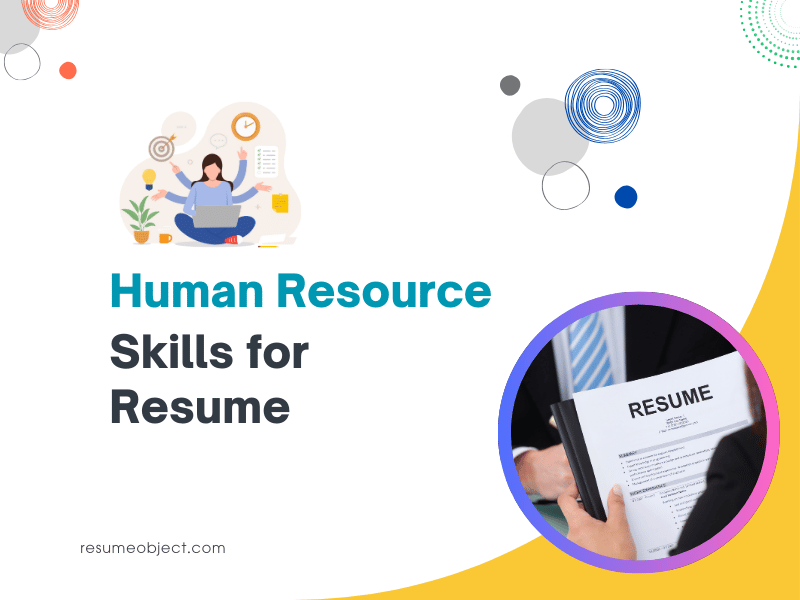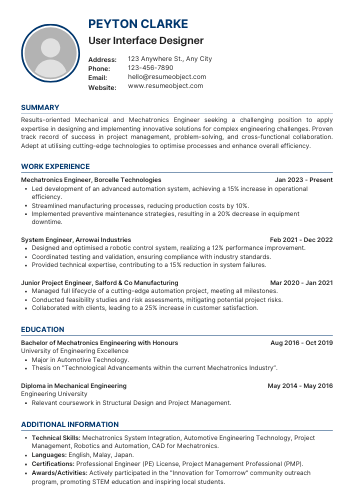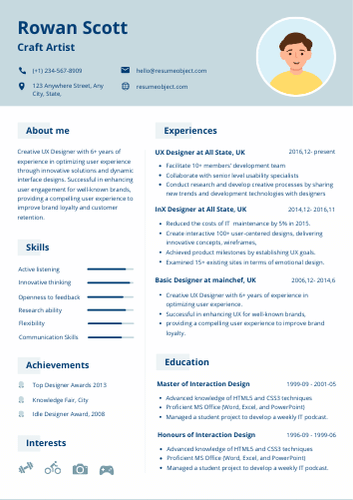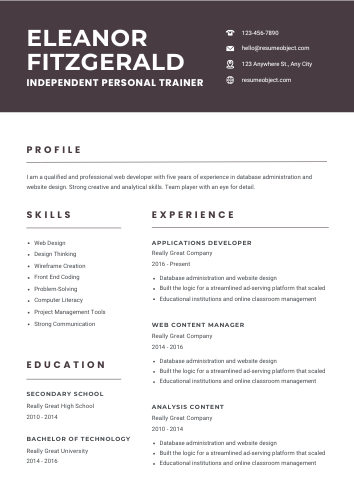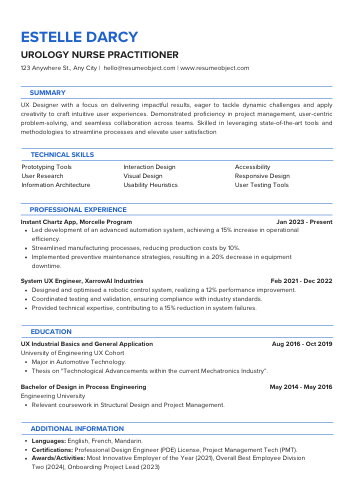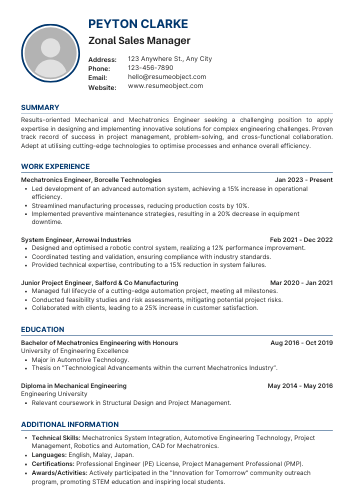30 Analytics Skills for Resume – How to List for Analytics Resume
Analytics Skills on Resume
Showcase your value with the right Analytics Skills for Resume: a concise list of 30 in-demand capabilities that hiring managers seek. From data wrangling and SQL to visualization, machine learning, and storytelling, learn how to list each skill to highlight impact and results. Follow simple formatting tips to turn technical strengths into interviews and promotions quickly.
Why Analytics Skills Matter for a Resume
Highlighting analytics skills on your resume proves technical proficiency, problem-solving ability, and data-driven decision-making. Recruiters scan for tools, methodologies, and results that demonstrate measurable impact, making these skills essential to stand out and secure competitive analytics roles every hiring cycle.
Analytics Skills for Resume are the bridge between raw data and business decisions, showing employers you can extract insights that drive growth. Highlighting proficiency in tools, statistical methods, and data storytelling proves you don’t just analyze numbers—you translate them into strategy, optimize processes, and measure impact. Recruiters prioritize candidates who demonstrate measurable outcomes, cross-functional collaboration, and the ability to ask the right questions that turn ambiguity into actionable plans.
- Technical tools: SQL, Python/R, Excel, BI platforms
- Statistical and ML methods: regression, clustering, A/B testing
- Data wrangling and visualization: ETL, dashboards, storytelling
- Business acumen: KPI definition, ROI analysis, stakeholder communication
- Soft skills: problem-solving, critical thinking, presentation
Quantify achievements with metrics, showcase project impact, and tailor keywords to job descriptions to pass applicant tracking systems and stand out in competitive hiring processes with clear examples today. Including these Analytics Skills for Resume elements convinces hiring managers you’ll deliver results from day one.
Boost classroom impact and hireability by showcasing proven techniques—explore essential Assistant Teacher Skills for Resume to strengthen your resume today and land interviews faster now.
Top 20 Skills for a Analytics Resume
To stand out in the competitive field of analytics, showcasing the right skills on your resume is crucial. Here are the top 20 analytics skills for your resume:
- Data Analysis
- Statistical Analysis
- Data Visualization
- SQL
- Python
- R Programming
- Excel
- Machine Learning
- Predictive Modeling
- A/B Testing
- Data Mining
- Business Intelligence
- Tableau
- Google Analytics
- Data Warehousing
- ETL Processes
- Problem Solving
- Critical Thinking
- Communication Skills
- Data Governance
Top Hard Skills for a Analytics Resume
The following list highlights the top hard skills employers seek for analytics resumes, showcasing technical proficiencies and tools that demonstrate analytical capability, data fluency, and measurable impact—essential for landing interviews and advancing analytics careers professionally.
-
Data Analysis: The ability to interpret complex data sets to identify trends, patterns, and insights that inform decision-making.
-
Statistical Analysis: Proficiency in applying statistical methods to analyze data and validate findings, ensuring accuracy and reliability.
-
Data Visualization: Skill in creating visual representations of data, such as charts and graphs, to effectively communicate insights to stakeholders.
-
SQL Proficiency: Expertise in using SQL to query databases, extract data, and manipulate datasets for analysis.
-
Excel Mastery: Advanced knowledge of Excel functions, formulas, and pivot tables to perform data analysis and reporting tasks.
-
Predictive Modeling: Ability to develop models that forecast future trends based on historical data, aiding in strategic planning.
-
Machine Learning: Familiarity with machine learning algorithms and techniques to build predictive models and automate data analysis.
-
Data Mining: Experience in extracting valuable information from large data sets using various techniques and tools.
-
Business Intelligence Tools: Proficiency in using BI tools like Tableau, Power BI, or Looker to analyze and visualize business data.
-
Statistical Software: Knowledge of software like R or Python for conducting advanced statistical analysis and data manipulation.
-
Data Cleaning: Expertise in preparing and cleaning data to ensure accuracy and quality for analysis.
-
A/B Testing: Understanding of experimental design and analysis to optimize marketing strategies and product features.
-
Database Management: Skills in managing and maintaining databases to ensure data integrity and accessibility.
-
Web Analytics: Experience with tools like Google Analytics to track and analyze website performance and user behavior.
-
Reporting Skills: Ability to create comprehensive reports that summarize findings and provide actionable recommendations based on data analysis.
Other Skills for Resumes
Top Soft Skills for a Analytics Resume
Following are the top soft skills for analytics resumes, showcasing interpersonal strengths, communication, problem-solving, collaboration, and adaptability that complement technical expertise—essential to stand out, drive insights, influence stakeholders, and deliver results.
-
Communication: The ability to convey complex data insights clearly and effectively to stakeholders at all levels.
-
Problem-Solving: Demonstrating analytical thinking to identify issues and develop strategic solutions based on data analysis.
-
Critical Thinking: Evaluating information and arguments rigorously to make informed decisions and recommendations.
-
Collaboration: Working effectively within a team environment, sharing knowledge, and contributing to group objectives.
-
Adaptability: Being flexible in response to changing data landscapes and evolving business needs, ensuring relevance and accuracy.
-
Attention to Detail: Ensuring precision in data analysis and reporting, which is crucial for maintaining data integrity and quality.
-
Time Management: Prioritizing tasks effectively to meet deadlines while managing multiple projects in a fast-paced environment.
-
Creativity: Applying innovative approaches to data analysis and visualization, enhancing the presentation of insights.
-
Interpersonal Skills: Building strong relationships with colleagues and clients, fostering collaboration and trust.
-
Curiosity: A strong desire to learn and explore new data trends, tools, and methodologies to enhance analytics capabilities.
How to List Analytics Skills on a Resume
This concise guide clarifies why hiring managers care, what showcases impact, and where to place technical competencies—covering How to list skills effectively and tailoring Analytics Skills for Resume to boost credibility and interview invitations.
When crafting your resume, showcasing your Analytics skills for resume effectively is crucial to stand out. Begin by placing your analytics skills in a dedicated section, ensuring it's easily visible. Use bullet points for clarity and impact. Highlight both technical and soft skills that are relevant to the job you're applying for.
Consider including the following Analytics skills for resume:
- Proficiency in data analysis tools (e.g., Excel, Tableau, Google Analytics)
- Experience with statistical programming languages (e.g., R, Python)
- Ability to interpret complex datasets and generate actionable insights
- Knowledge of data visualization techniques
- Familiarity with database management (e.g., SQL)
- Strong problem-solving and critical thinking skills
- Excellent communication skills for presenting findings
By emphasizing these skills, you demonstrate your capability and readiness for the analytics role, making your resume more appealing to potential employers.
Resume Example for Analytics with Skills Highlighted
Discover a detailed example showcasing key skills and expertise in analytics, designed to guide you in crafting a standout sample resume that effectively highlights your strengths and attracts potential employers in the data-driven field.
John Doe
123 Main Street, City, State, Zip
(123) 456-7890
[email protected]
LinkedIn: linkedin.com/in/johndoe
Objective
Detail-oriented and analytical professional with strong Analytics Skills seeking to leverage expertise in data analysis and visualization to drive business insights and decision-making.
Education
Bachelor of Science in Data Science
University of State, City, State
Graduated: May 2022
Relevant Coursework: Statistical Analysis, Data Mining, Predictive Analytics, Machine Learning, Data Visualization
Skills
- Analytics Skills: Proficient in data analysis and interpretation, statistical modeling, and predictive analytics.
- Tools & Technologies: Advanced knowledge of Python, R, SQL, Excel, Tableau, and Google Analytics.
- Data Visualization: Expertise in creating compelling visual representations of data to convey insights effectively.
- Statistical Analysis: Strong background in hypothesis testing, regression analysis, and A/B testing.
- Problem Solving: Excellent analytical and critical thinking skills to solve complex business problems.
Experience
Data Analyst Intern
ABC Corporation, City, State
June 2021 – August 2021
- Conducted data analysis using SQL to extract insights from large datasets, improving reporting efficiency by 30%.
- Developed interactive dashboards in Tableau to visualize key performance metrics, enhancing decision-making processes.
- Collaborated with cross-functional teams to identify data needs and deliver actionable insights based on analysis.
Projects
Sales Forecasting Model
- Developed a predictive model using Python to forecast sales based on historical data, resulting in a 15% increase in accuracy over previous methods.
Customer Segmentation Analysis
- Implemented k-means clustering in R to segment customers based on purchasing behavior, enabling targeted marketing strategies that improved conversion rates by 20%.
Certifications
- Google Data Analytics Certificate
- Microsoft Certified: Data Analyst Associate
Professional Affiliations
- Member, Data Science Society
- Member, Analytics Professionals Association
References
Available upon request.
Action Verbs to Pair with Analytics Skills
Discover how to effectively showcase your expertise by selecting powerful action verbs to pair with skills related to analytics, enhancing your resume’s impact and clearly demonstrating your capabilities to potential employers.
- Analyzed
- Interpreted
- Optimized
- Visualized
- Evaluated
- Forecasted
- Synthesized
- Implemented
- Monitored
- Automated
- Assessed
- Reported
- Enhanced
- Streamlined
- Collaborated
Common Mistakes to Avoid When Listing Analytics Skills
Mistakes to avoid while adding Analytics Skills on a Resume can undermine credibility; learn common pitfalls, and avoid irrelevant fluff—practical tips to prevent mistakes to avoid while adding skills and polish Analytics Skills for Resume.
When crafting your resume, highlighting your Analytics skills is crucial for standing out in a competitive job market. However, there are several common mistakes that candidates often make while showcasing these skills. Avoiding these pitfalls will enhance your resume's effectiveness and increase your chances of landing an interview.
- Overloading with Jargon: Using excessive technical terms can alienate non-technical recruiters. Keep your language clear and concise.
- Neglecting Relevant Tools: Failing to mention specific analytics tools (like Google Analytics, Tableau, etc.) can make your skills appear generic. Tailor your tools to the job description.
- Ignoring Soft Skills: Analytics isn't just about numbers. Highlight skills like communication and problem-solving that complement your technical abilities.
- Lack of Quantifiable Achievements: Simply listing skills without showing how you've applied them in past roles misses the opportunity to demonstrate impact. Use metrics to showcase your contributions.
- Inconsistent Formatting: A disorganized presentation can distract from your skills. Ensure your resume is visually appealing and easy to read.
By steering clear of these mistakes, you can effectively present your Analytics skills for resume and significantly improve your chances of making a lasting impression.
Tips for Listing Analytics Skills on Resume
When crafting a resume that highlights your Analytics Skills for Resume, it's essential to present your capabilities clearly and compellingly. Employers seek candidates who can leverage data to drive decision-making and improve business outcomes. Here are some best tips to enhance your resume with relevant analytics skills.
- Highlight Technical Proficiencies: Include specific tools and software (e.g., SQL, Python, R, Tableau) that you are proficient in.
- Showcase Relevant Experience: Detail any past roles or projects where you utilized analytics to achieve measurable results.
- Use Quantifiable Achievements: Whenever possible, quantify your impact with numbers, such as percentage increases in efficiency or revenue.
- Tailor Skills to Job Descriptions: Customize your skills section to align with the requirements listed in the job posting.
- Include Certifications: List any relevant certifications (e.g., Google Analytics, Data Science) to validate your expertise.
By following these tips, you can effectively showcase your Analytics Skills for Resume, making you a standout candidate in the competitive job market.
Do
Do: Quantify your impact - Use numbers (e.g., increased revenue by 15%, reduced processing time by 40%) to show measurable results from your analyses and make achievements tangible.
Do: Tailor keywords to the job - Mirror terminology from the job posting (SQL, Python, Tableau, A/B testing, predictive modeling) so ATS and hiring managers instantly recognize relevant skills.
Do: List technical tools and proficiency - Specify tools, languages, and levels (e.g., SQL - advanced, Python - intermediate, Power BI - expert) to set clear expectations of your hands-on capabilities.
Do: Highlight end-to-end projects - Briefly describe the problem, your approach, and the outcome (data sources, models used, business value) to demonstrate practical experience and problem-solving.
Do: Show continuous learning and certifications - Include recent courses, certifications, or competitions (e.g., Coursera, Kaggle, Google Data Analytics Certificate) to signal up-to-date skills and commitment to growth.
Don't
Don't: Toss in buzzwords without proof - listing “data-driven” or “machine learning” without concrete examples or outcomes makes skills look hollow; add brief context or a project to validate the claim.
Don't: Overclaim proficiency levels - stating expert-level knowledge you don't have invites questions in interviews; specify tools and experience (e.g., “Python - 3 years, pandas, scikit-learn”).
Don't: Omit measurable impact - mentioning tasks like “analyzed data” is weak; include metrics (e.g., “reduced churn 12% by building retention model”) to show value.
Don't: Use a one-size-fits-all skills list - copying generic skill sets wastes prime resume space; tailor tools and techniques to the job description and industry.
Don't: Clutter with irrelevant or outdated tools - avoid listing obsolete software or unrelated skills; focus on current analytics tools, languages, and methods that support the role (SQL, Python/R, Tableau/Power BI, A/B testing, statistical modeling).
FAQs about Analytics Resume Skills
How many skills should I include on a Analytics resume?
Include 5-7 relevant Analytics Skills for Resume to showcase your expertise without overwhelming recruiters. Focus on key tools, techniques, and methodologies that align with the job description for maximum impact.
How do I know which skills are most relevant for a Analytics job role?
To identify the most relevant Analytics Skills for Resume, review job descriptions in your target role, highlight frequently mentioned technical tools and soft skills, and tailor your resume to showcase expertise in data analysis, visualization, and problem-solving aligned with industry demands.
How can I prove the Analytics skills I list on my resume?
Showcase Analytics Skills for Resume by including certifications, project portfolios, data-driven achievements, and practical experience. Highlight specific tools and methodologies used, and provide measurable results to demonstrate your expertise effectively to employers.
Should I update my Analytics skills section for each job application?
Yes, tailor your Analytics Skills for Resume to match each job description, highlighting relevant tools and techniques. Customizing demonstrates your fit for the role and increases your chances of passing applicant tracking systems and impressing hiring managers.
How to list Analytics skills on a resume?
Highlight relevant tools, techniques, and achievements under a dedicated "Analytics Skills for Resume" section. Use specific keywords like data analysis, visualization, and statistical methods, and quantify results to demonstrate impact effectively.
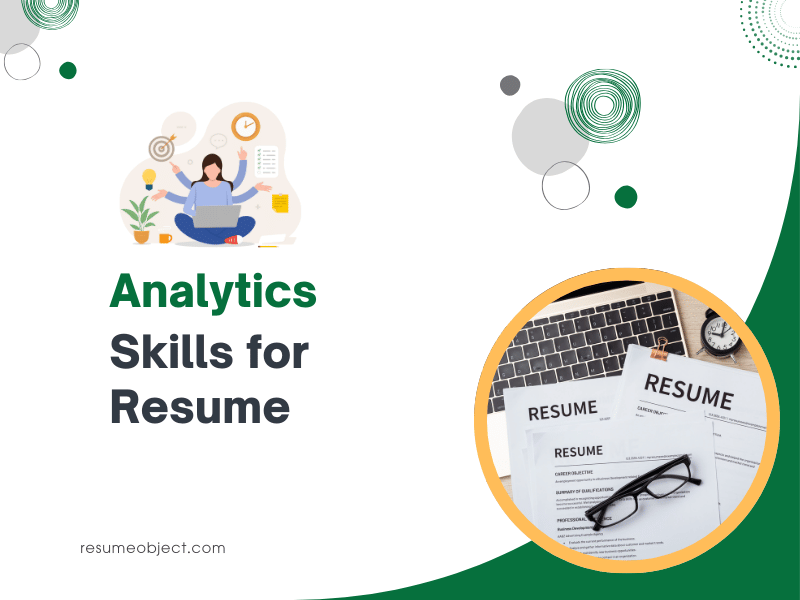
Analytics Skills for Resume
Boost your hiring chances with 30 Analytics Skills for Resume - learn how to list technical, tool, and soft skills with examples and action-ready phrasing.
Top Hard Skills
Advanced SQL querying and optimization
Python for data analysis
Statistical modeling and inference
Machine learning algorithms implementation
Tableau and Power BI visualization
Top Soft Skills
Critical thinking and analytical reasoning
Clear communication with nontechnical stakeholders
Problem solving and decision making
Collaboration and cross-functional teamwork
Time management and prioritization
Mistakes to Avoid When Listing Skills
Listing irrelevant or outdated tools
Overloading with unproven buzzwords
Claiming skills without quantifiable proof
Tips to List Skills
Quantify achievements with metrics
List tools and technologies
Highlight projects and outcomes
Free Resume Templates




